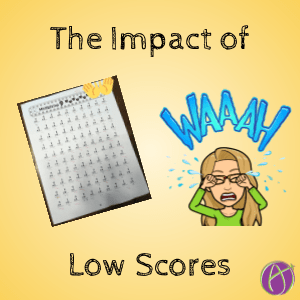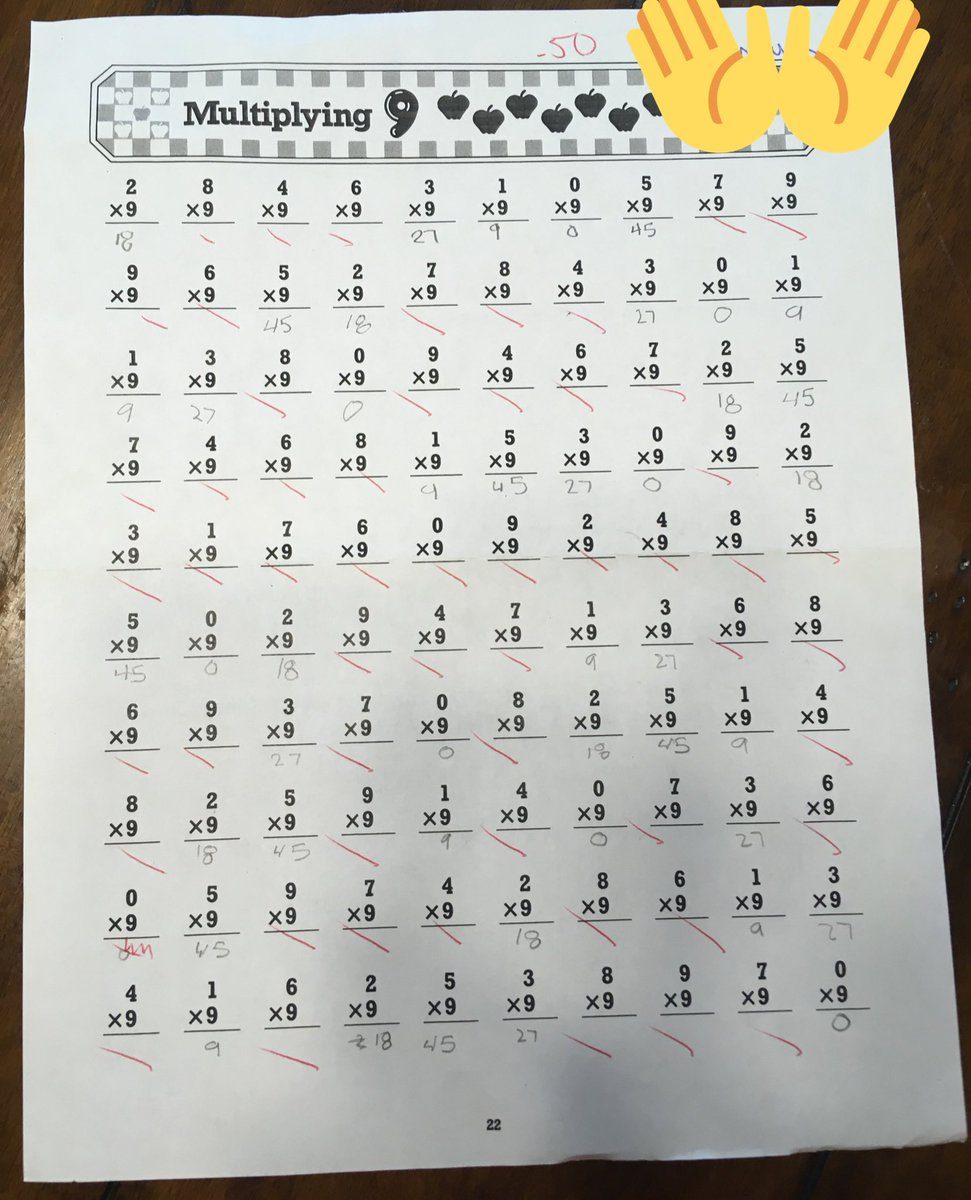How Does That Score Make the Student Feel?
I have fond feelings about my 4th grade teachers, both of them. Because I could not do math facts fast I had to repeat the 4th grade. My teachers were well intentioned with the timed math facts, but it has had a lifetime of negative impact on me.
I am 42 year old, thinking about math facts and order of operations makes my heart race. I will tell a joke that I am bad at math. I have a degree in math, with honors. I make one heck of a spreadsheet and I code for fun. I am NOT bad at math, but was made to feel I was bad at math all the way through school.
My teachers didn’t mean to, but the end result was me being damaged for life. I will literally cry when I think about timed math tests.
An article I really like is “Fluency Without Fear” by Jo Boaler. Timing tests causes anxiety. It is the timed tests that are the start of kids hating mathematics.
Sunil Singh shares on his blog
“Solving math problems for correctness with speed. This is the most damaging idea we(not we, but our curriculum)directly/indirectly promote in mathematics. “
Purpose of Low Scores?
Well intentioned, seems like it is what we are supposed to do, but why do we put low scores on the top of kids papers?
Researcher Thomas Guskey says
There is no research to support giving a low score as motivating, in fact the opposite. They are more likely to give up.
Spelling Tests Too
I am a mom of 5 kids. It breaks my heart every single time one of my kids takes the red score at the top of their paper and says “This is the paper that proves I’m dumb.” My daughter brought me her spelling test results, crying. “I’m supposed to give this to you.” Well intentioned, but damaging.
This article on Teaching and Assessing Spelling states
“Too often, the spelling test simply documents spelling failure, rather than addresses it. For those who struggle with spelling, the test serves merely as a weekly reminder of their inadequacy”
Success Builds Success
Helping kids find success rather than documenting their failure is a better strategy for helping student learn. Negative associations run deep and can have an impact far beyond the math or spelling test. No score or number defines a person yet for many students they take a self definition because of low scores. No one wins.
In both the Fluency Without Fear article and the Teaching and Assessing Spelling article the teacher is encouraged to focus on UNDERSTANDING over speed and correctness. Standard practices from over 100 years ago such as timed math tests and spelling tests were never designed around research practices for student success. Let’s look at what we’ve learned since then about helping students to learn and feel confident rather than continuing practices that never made us feel good about ourselves either.
- Oooops, I Wrote on My Google Docs Template
- Communicate: Not Throw Words to the Universe
- Check My Spelling Activity
- CHECK the Conditional Formatting
- No Paper or Google Forms Spelling Tests
-
DOK = Critical Thinking
DOK is the measurement of critical thinking on a task. Better understanding Depth of Knowledge helps you to better incorporate critical thinking into lessons.
-
3 Google Sheets Shortcuts You’ll Actually Use
The answer is always a spreadsheet, but sometimes the tips are hard to remember to implement. Practice these 3 Google Sheets shortcuts to really help
-
Transforming the Reading Log
Reading logs can lean into compliance over developing a love for reading. Try ReadWorks to help support building knowledge and a love of reading.















